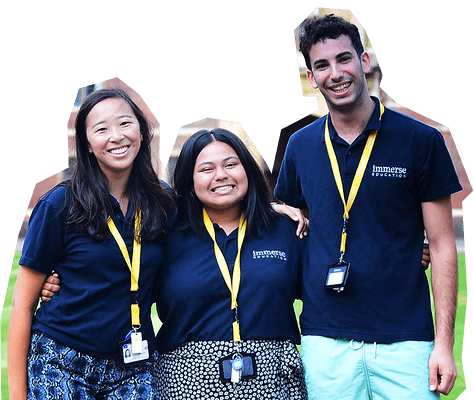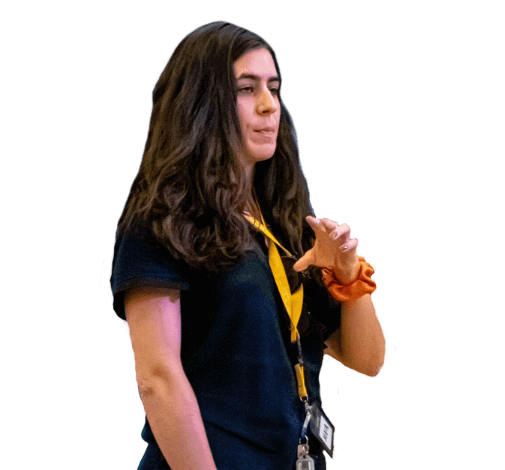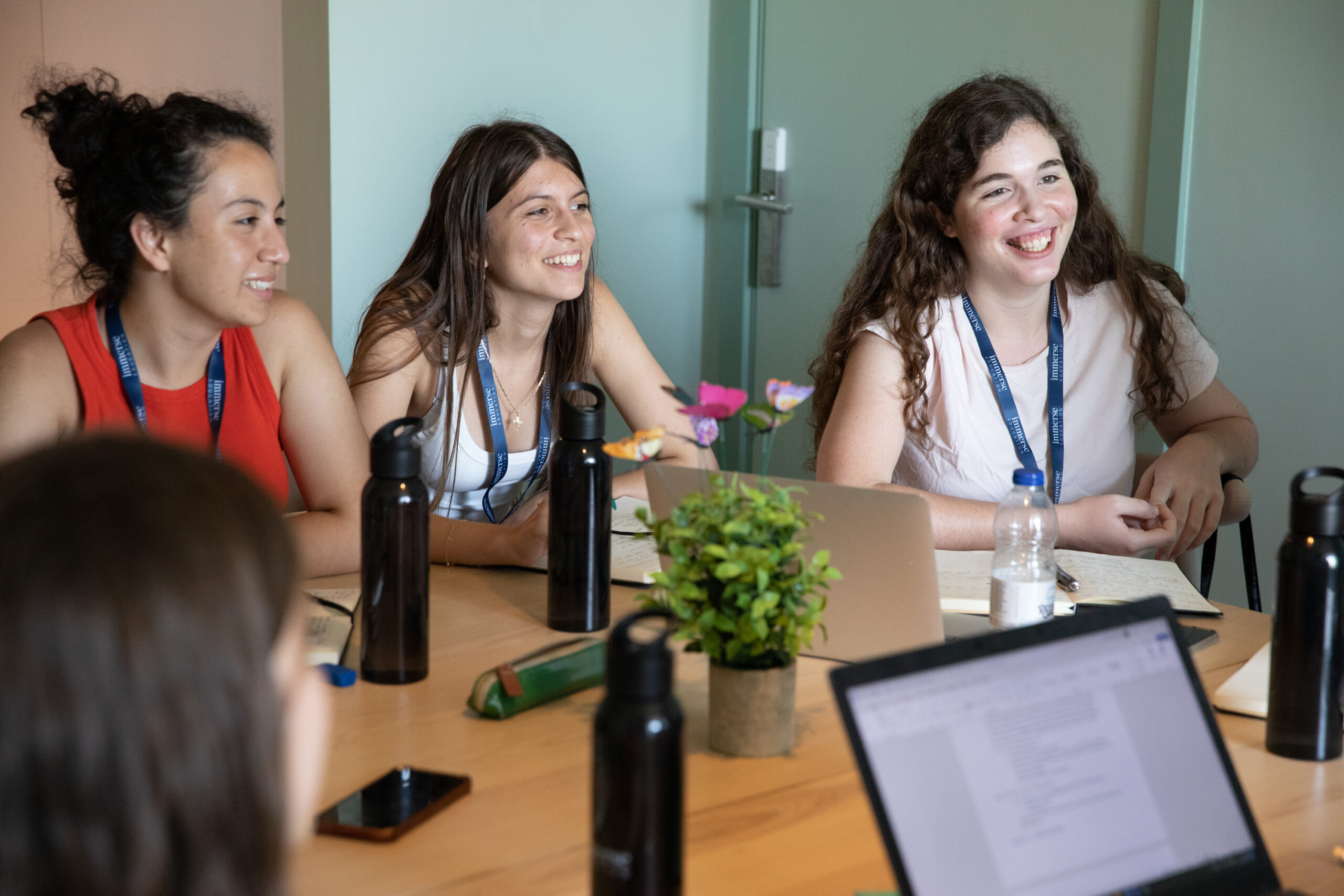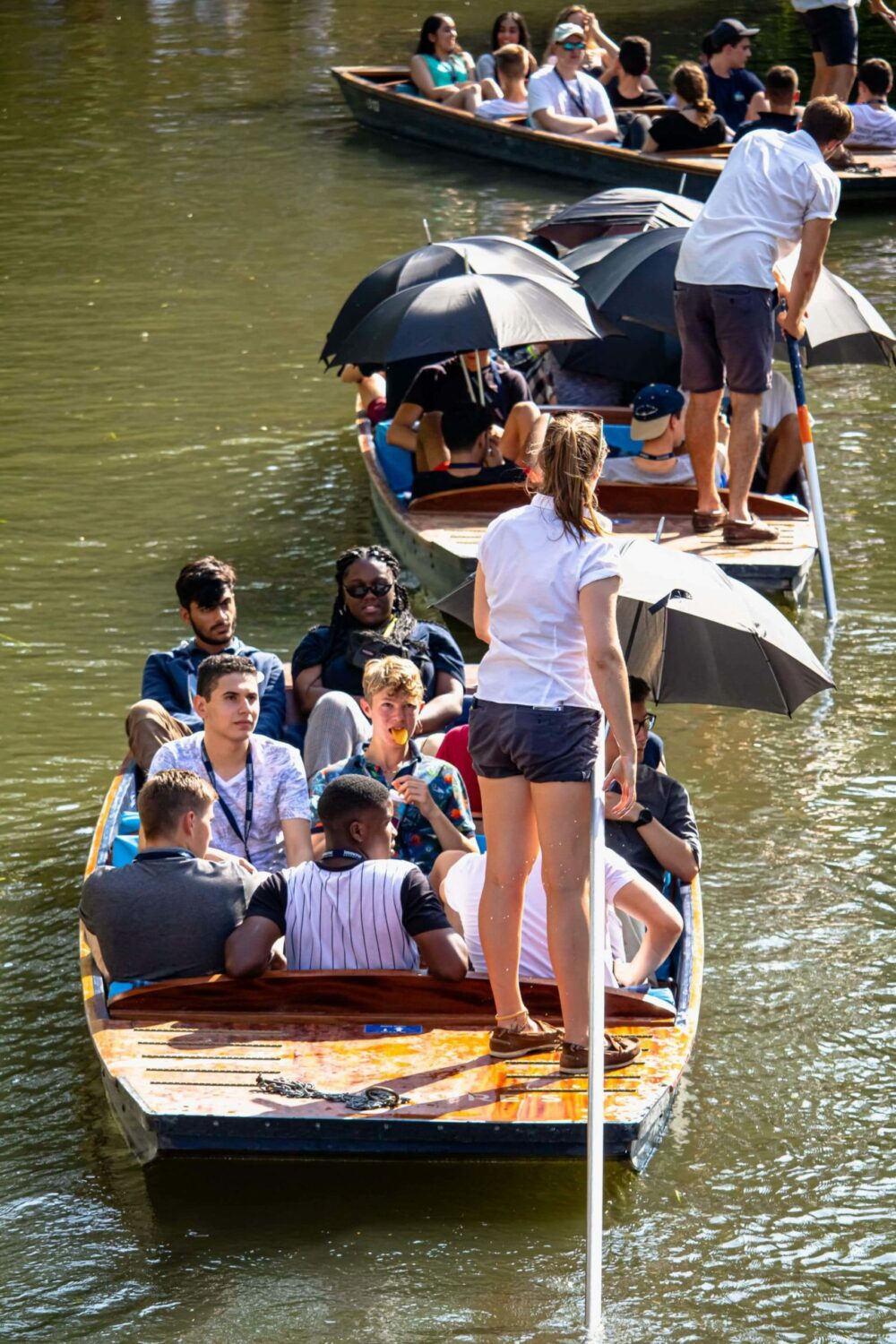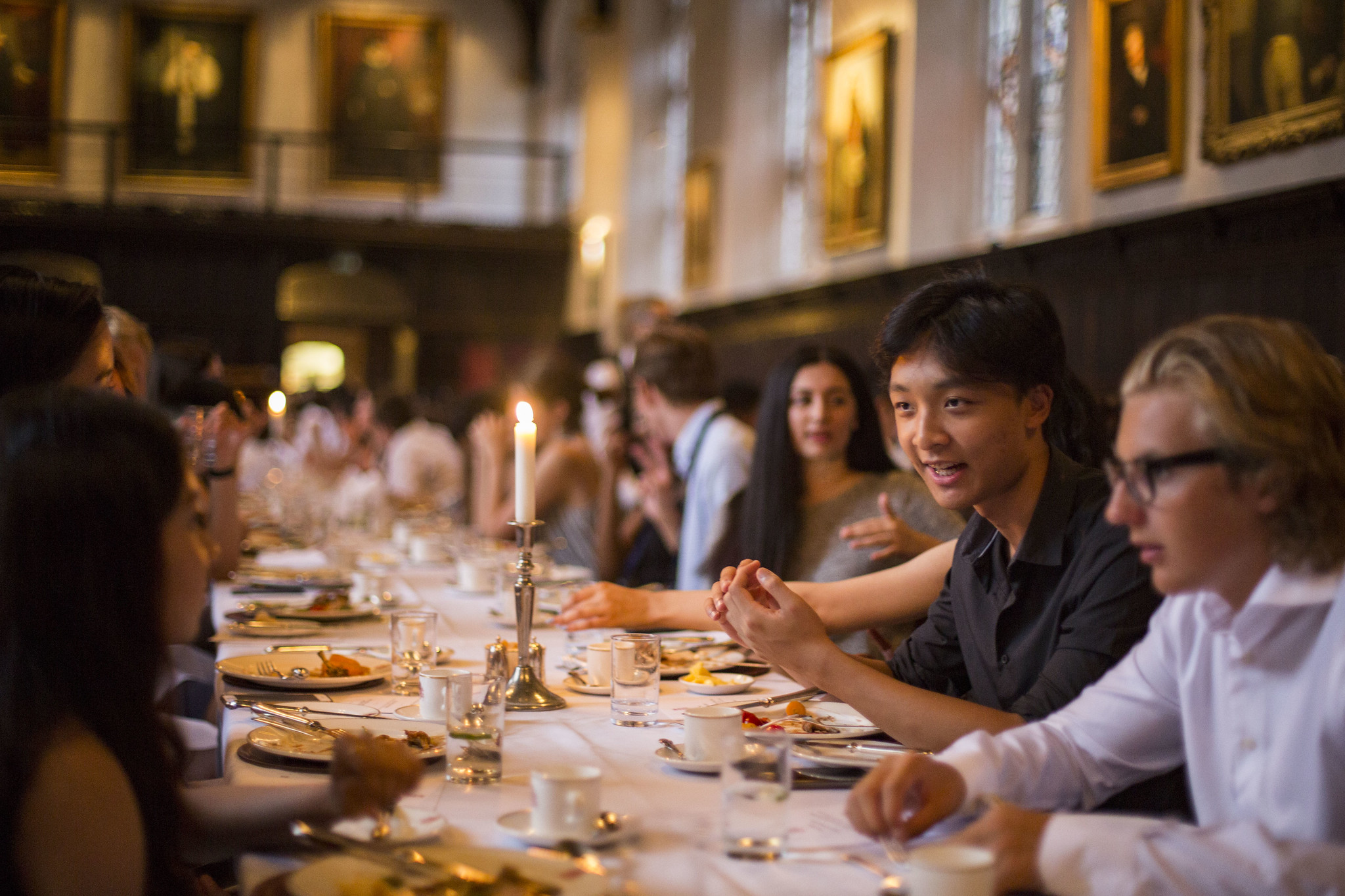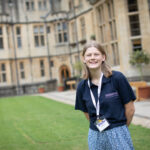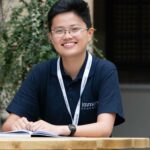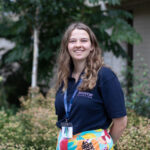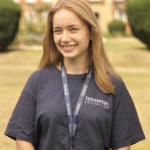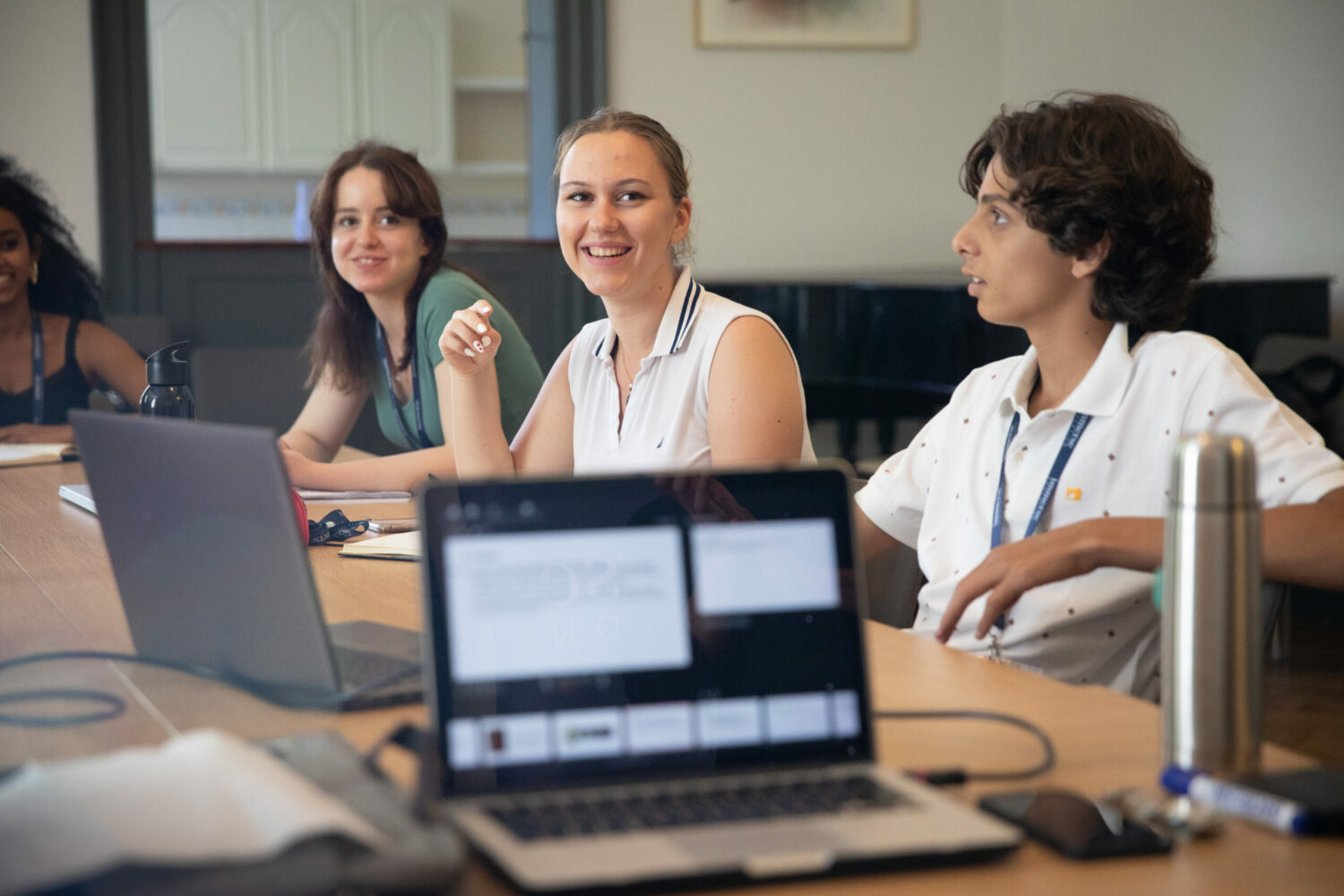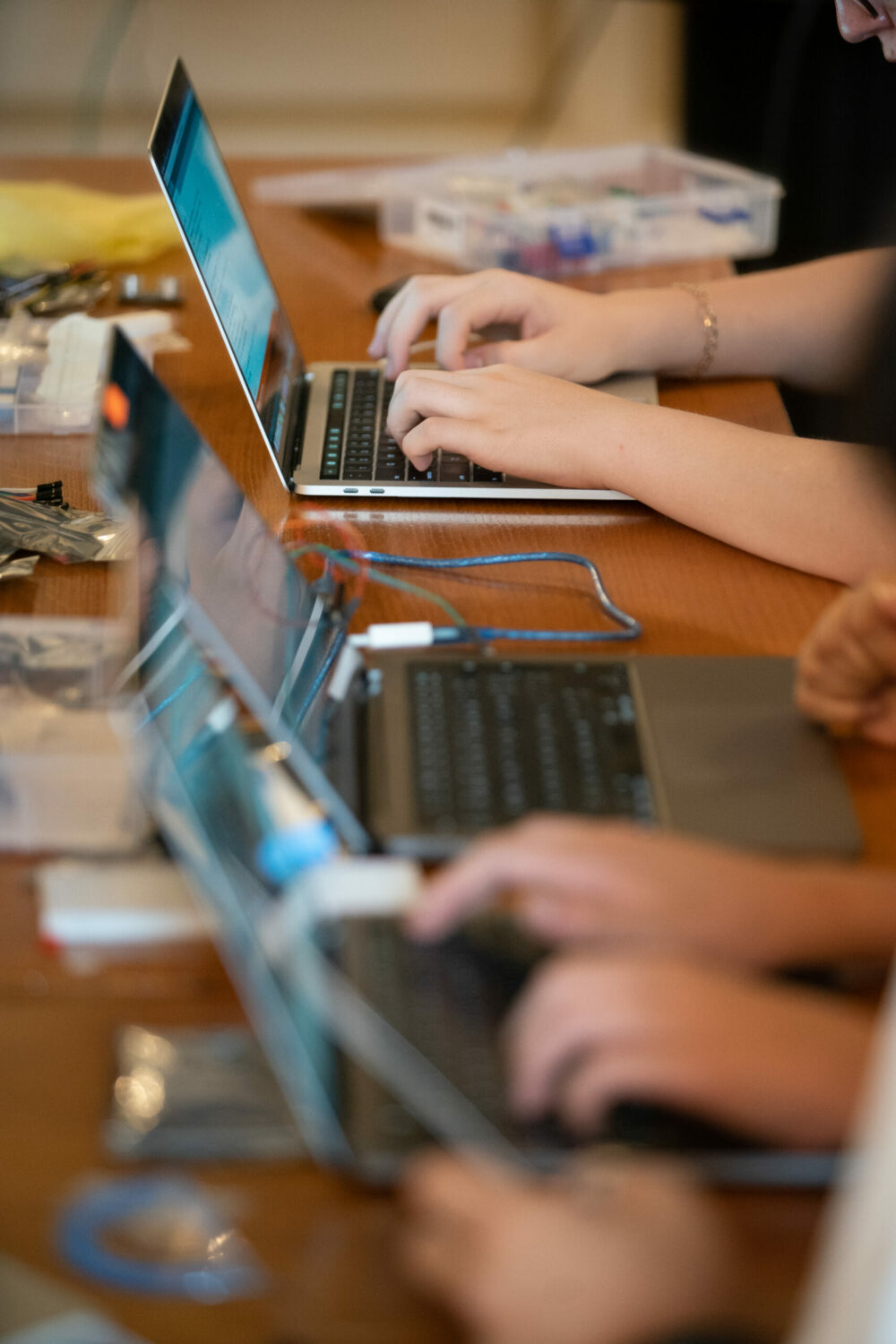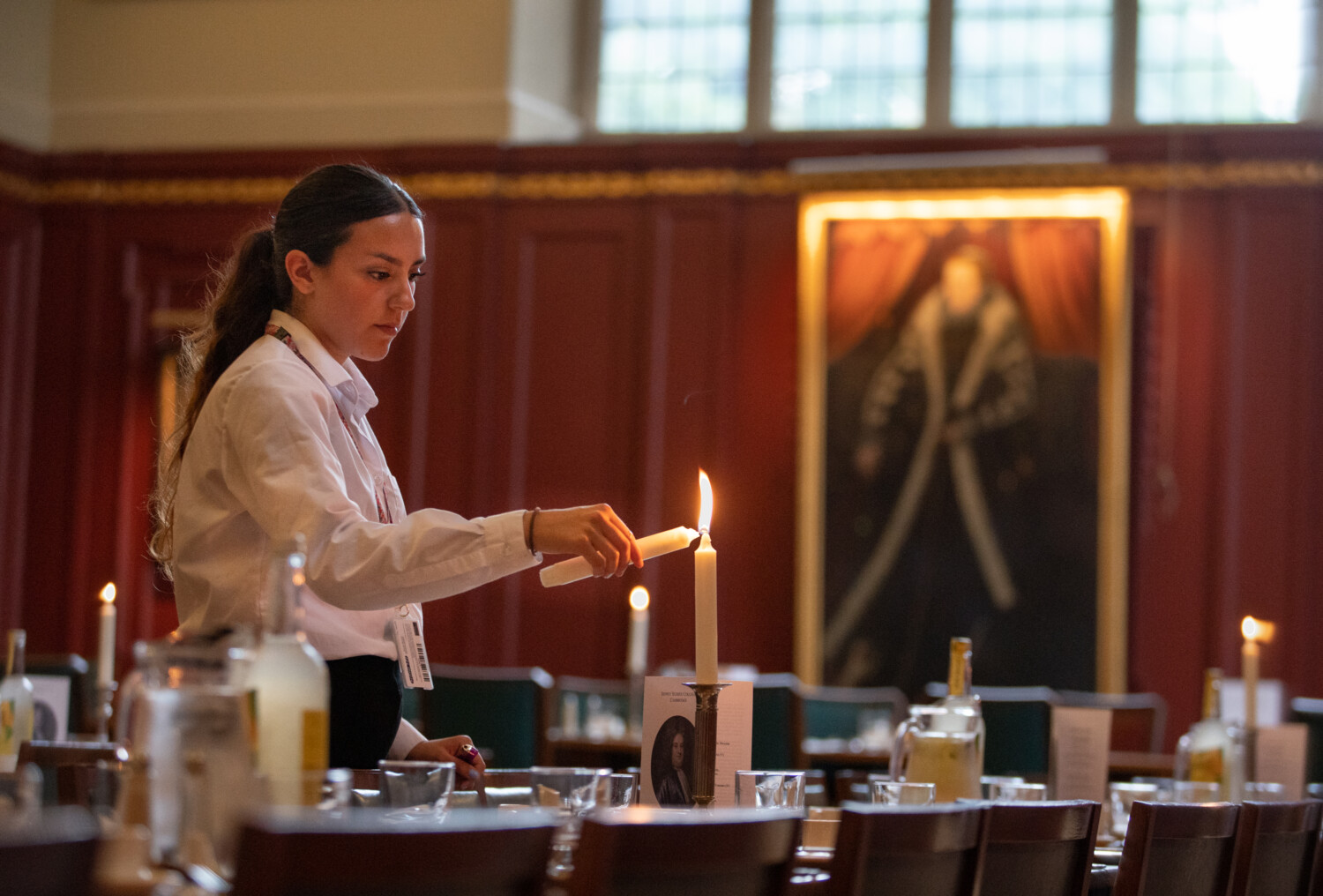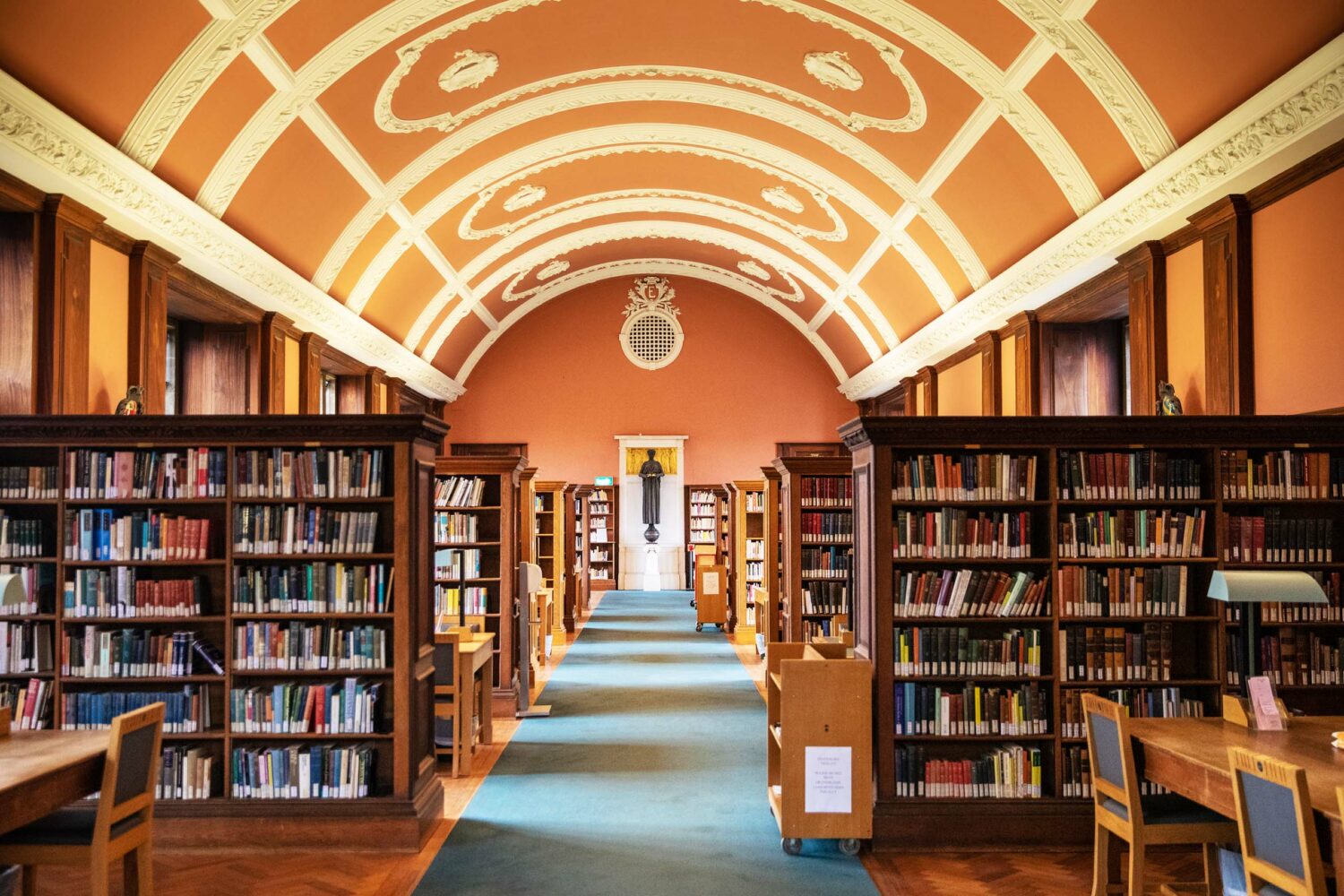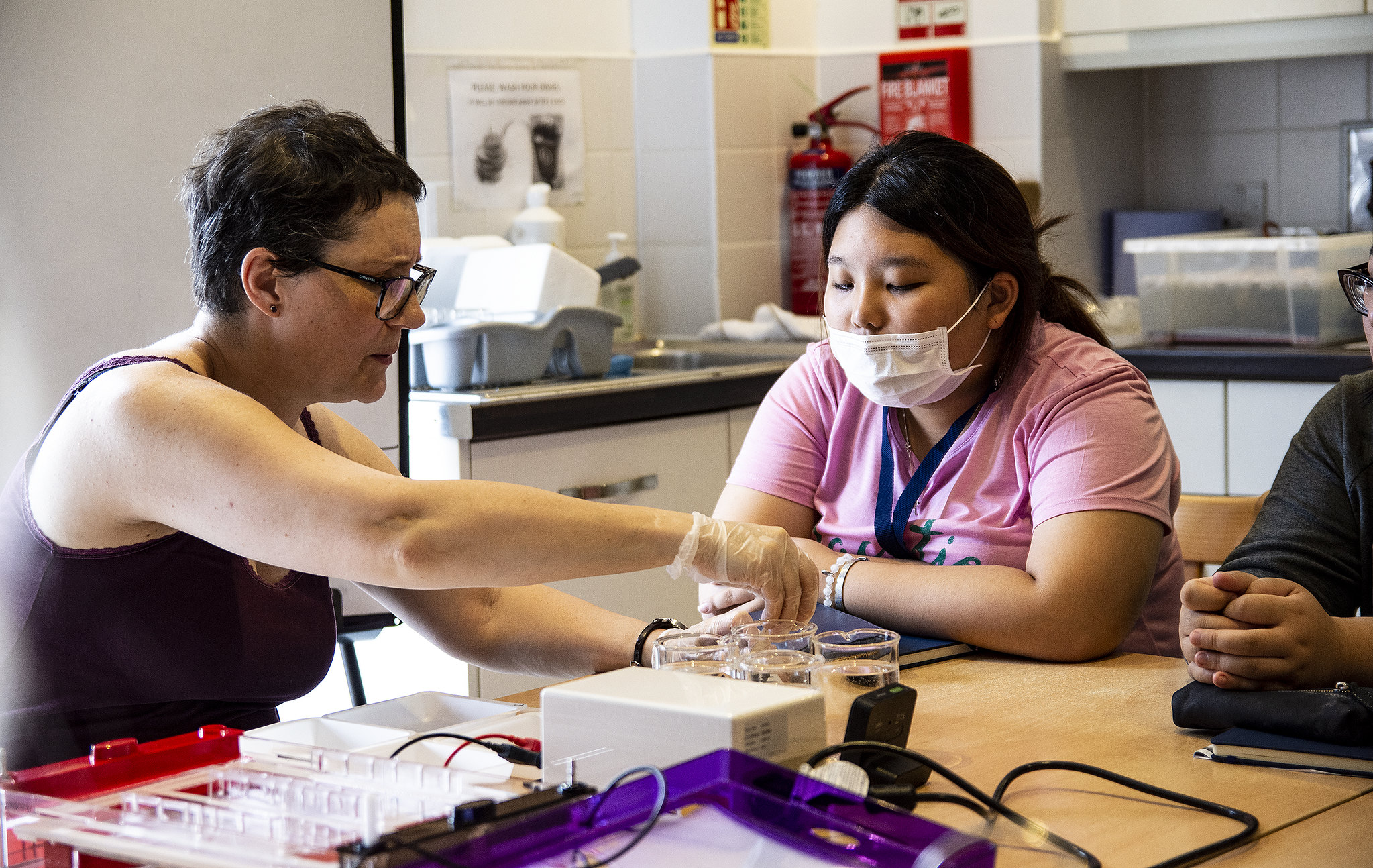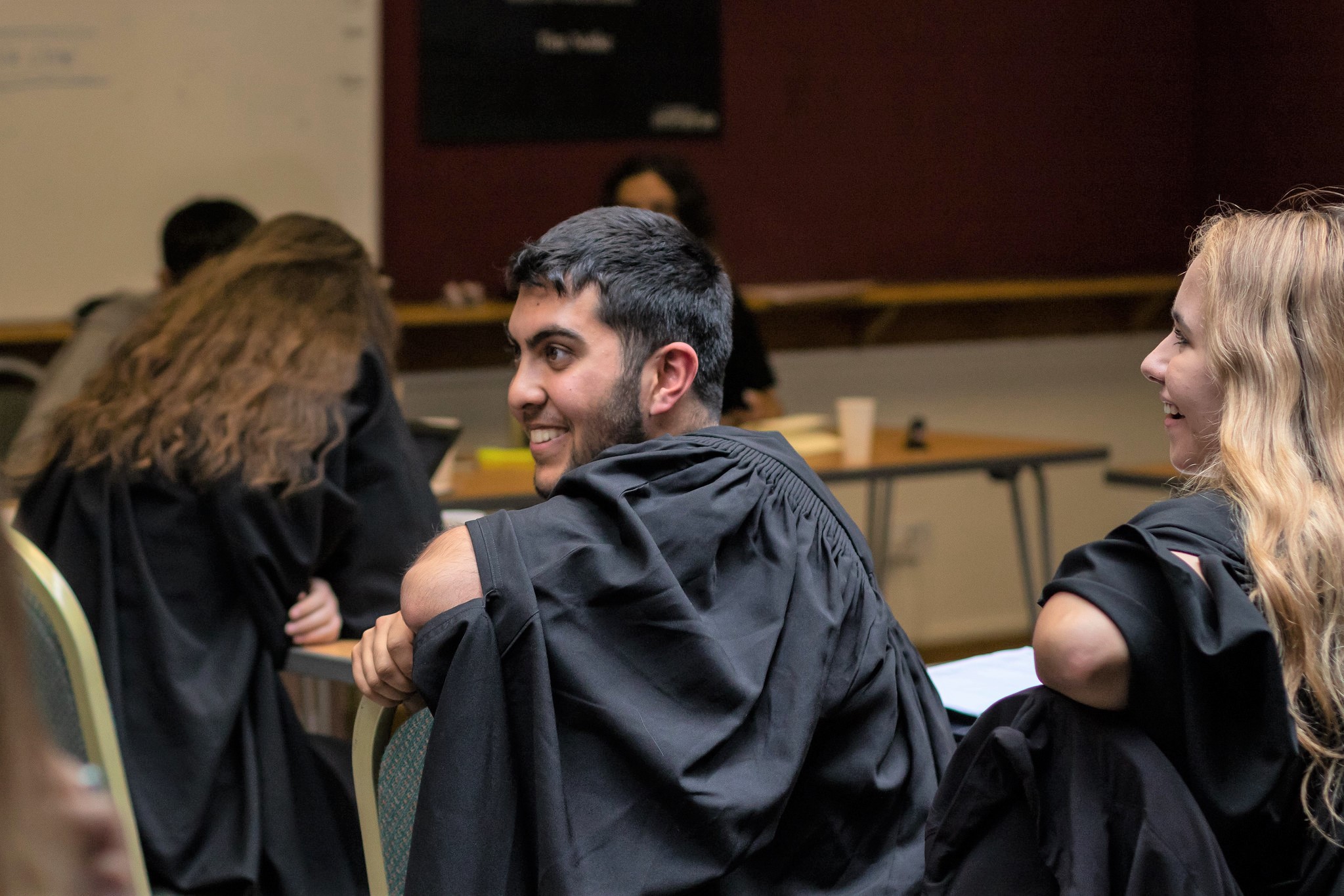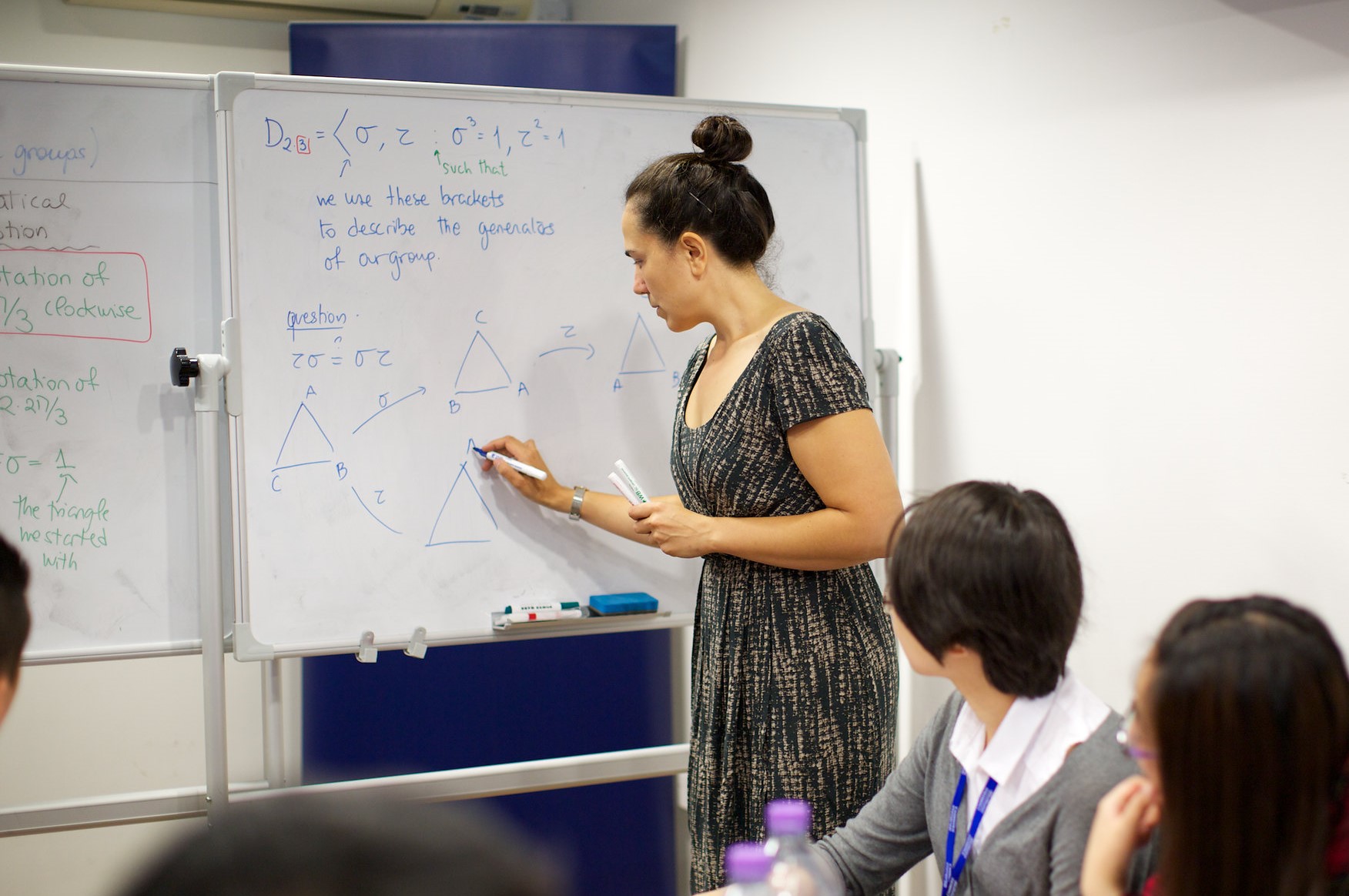Physics Summer School
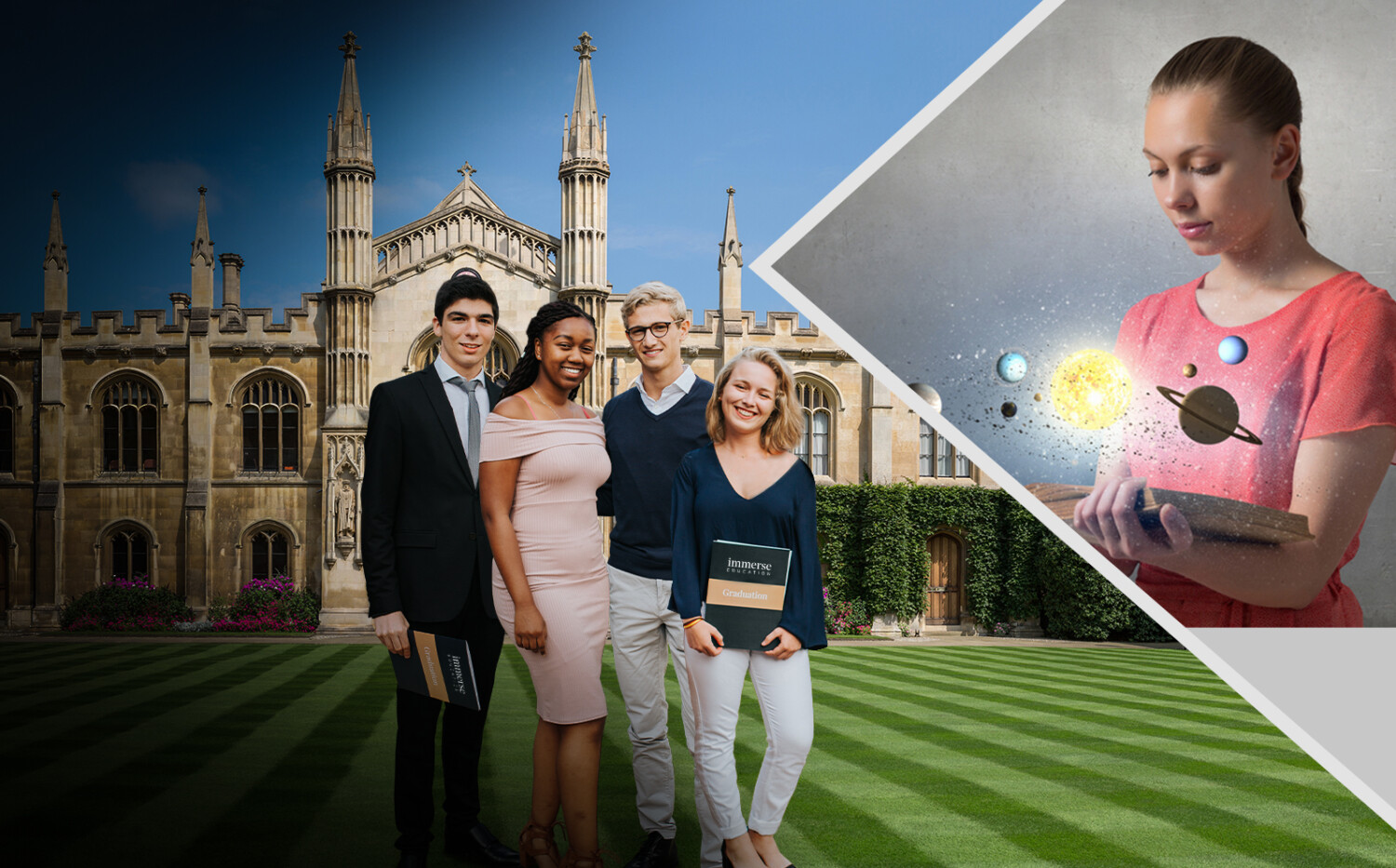

Advanced pre-university course in Physics in Cambridge colleges
The Immerse Education Physics programme is designed to build upon the knowledge that participants have already gained in a traditional classroom environment and highlight how this can be used to inspire further study at university. Participants are encouraged to explore new material in-depth and to form independent and considered opinions and ideas based on sound research and practical knowledge. By the end of the programme, participants will have a good understanding, not only of university- level content, but also the variety of degree programmes available in subjects related to physics.
Learn directly from expert academics from world-class universities
You will explore novel concepts and share ideas in small groups of like-minded and ambitious peers from around the world. In small class sizes averaging 7 students, you will be guided by expert tutors who have honed their expertise through teaching undergraduate students at world-class universities, including the universities of Cambridge, Oxford, and Harvard.
Our rigorous vetting process guarantees that all participants are taught by engaging and supportive educators who are, most of all, enthusiastic about sharing their expertise to ensure our summer school teaching is of the highest quality. Immerse™ is an unrivalled academic experience.
-
Average class size of 7
Maximum class size of 10 students -
1:1 tutorials
Supportive, challenging and engaging -
Academic workshops
Develop a practical understanding of your subject -
World-class tutors
Academics from Oxford and Cambridge
Boost your confidence and develop key attributes in academic skills workshops
Our workshops are geared towards unlocking participants’ potential, giving them the tools to prepare for the next steps of their education and future goals. Build upon existing study skills to support future university-level learning.
These workshops explore a diverse and enriching range of topics – past examples have ranged from ‘Productivity tips’ to ’21st Century Technology Skills’. We’re sure that you’ll learn something completely new. Unlike traditional schools, Immerse allows you to learn beyond the traditional curriculum.
This programme is designed for students with at least an upper-intermediate level of English (B2). If you are unsure if you meet this requirement, please contact advisor@immerse.education.
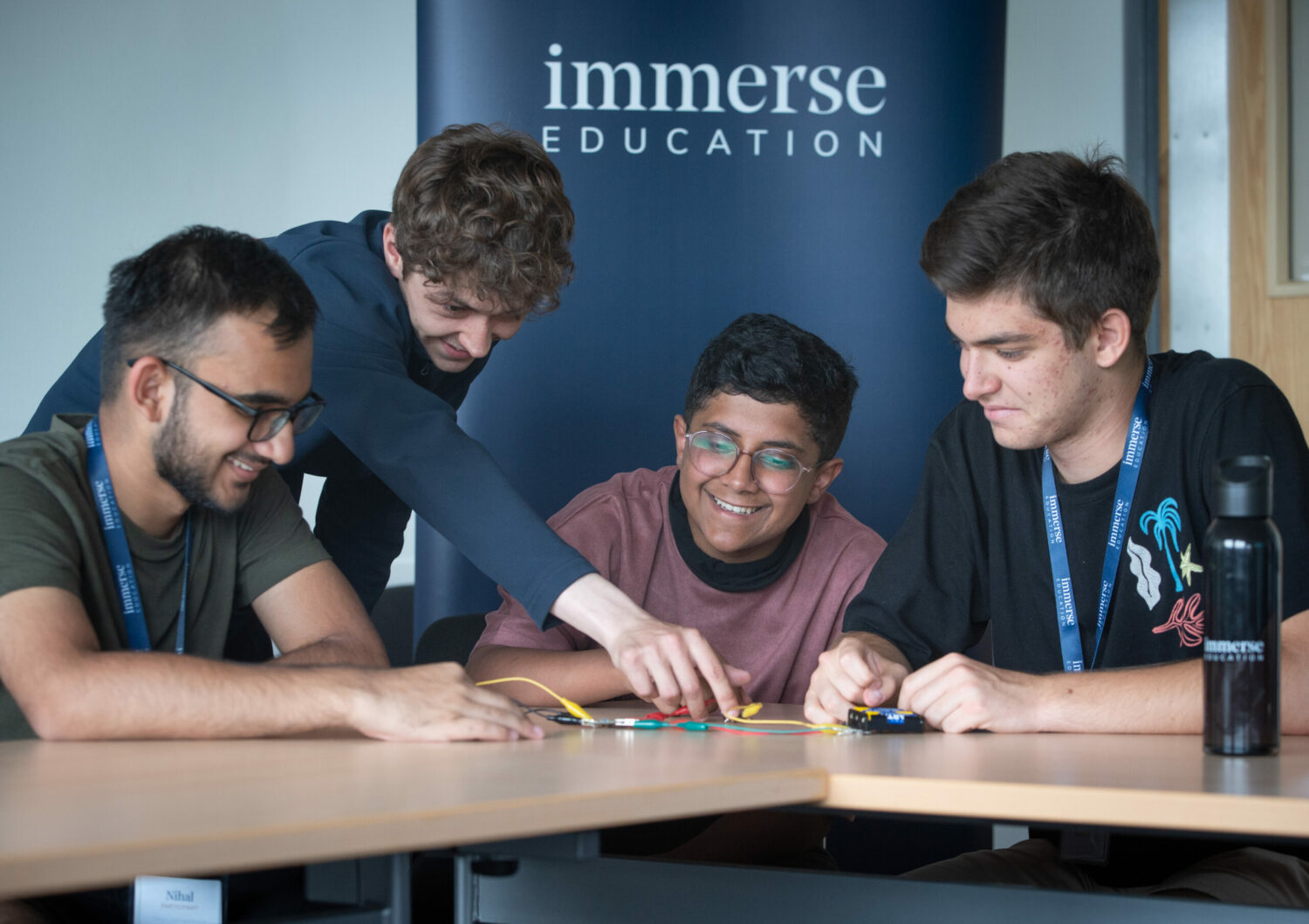
-
Certificate & detailed participant evaluation
All participants receive an individual report from their tutor -
Personal project or Creative portfolio
Develop a personal project or a creative portfolio to present at the end of the course -
Experience Oxbridge life
Live and learn like an Oxbridge undergraduate -
Enhance key academic skills
Interview skills, academic writing and presentation
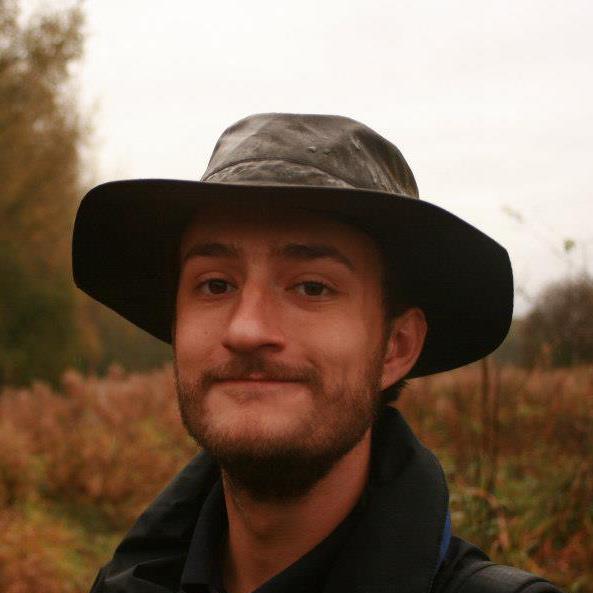
Example tutor:
Saul J
Guest speakers from previous summers
Dr Lynda Shaw
Abi Oyepitan
Dr Nigel Warburton
Studying with Immerse was a once in a lifetime experience. The programme ignited my passion in Physics and Mathematics and I feel as though I now have a good understanding of University life. I really enjoyed giving a presentation at the end of the programme and that highlighted that this was the subject for me. Thanks to the insights that Immerse provided, I’ve decided to apply to Cambridge University, inspired by how driven the other students on the programme were.
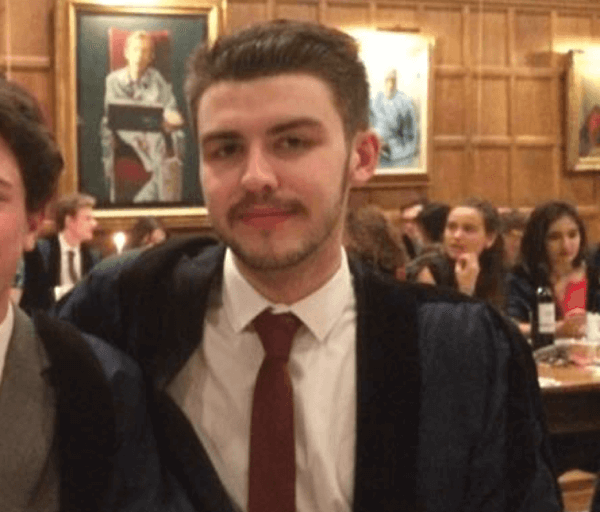
Work hard, play hard.
Action-packed social programme
Outside of lessons, we are proud to offer a busy and diverse social programme to help you get the most out of your time in Cambridge. This includes activities such as punting on the River Cam, zorb football and a murder mystery night in the college.
There are also two excursions during the programme, one day trip to visit Oxford and its constituent colleges, as well as an optional day out in London, seeing the city’s most famous landmarks as well as some free time for shopping. Those who choose not to travel to London are invited to afternoon tea in Cambridge.
Activities and excursions are run by our team of friendly mentors – whose main job is to maximise your enjoyment.
Work hard, play hard.
A unique social programme.
Experience traditional 'Formal Hall'
Formal Hall is a traditional weekly meal that takes place in every college. This is an opportunity for students to dress up, dine by candlelight in the magical surroundings of a Cambridge college’s dining hall.
As an Immerse student, you will experience formal dinner three times during your stay – once per week in Cambridge, as well as in an Oxford University college on the excursion day.
Formal hall is truly a memorable occasion, so remember to bring some smart clothes!
A unique social programme.
Live and study in a
Cambridge University College
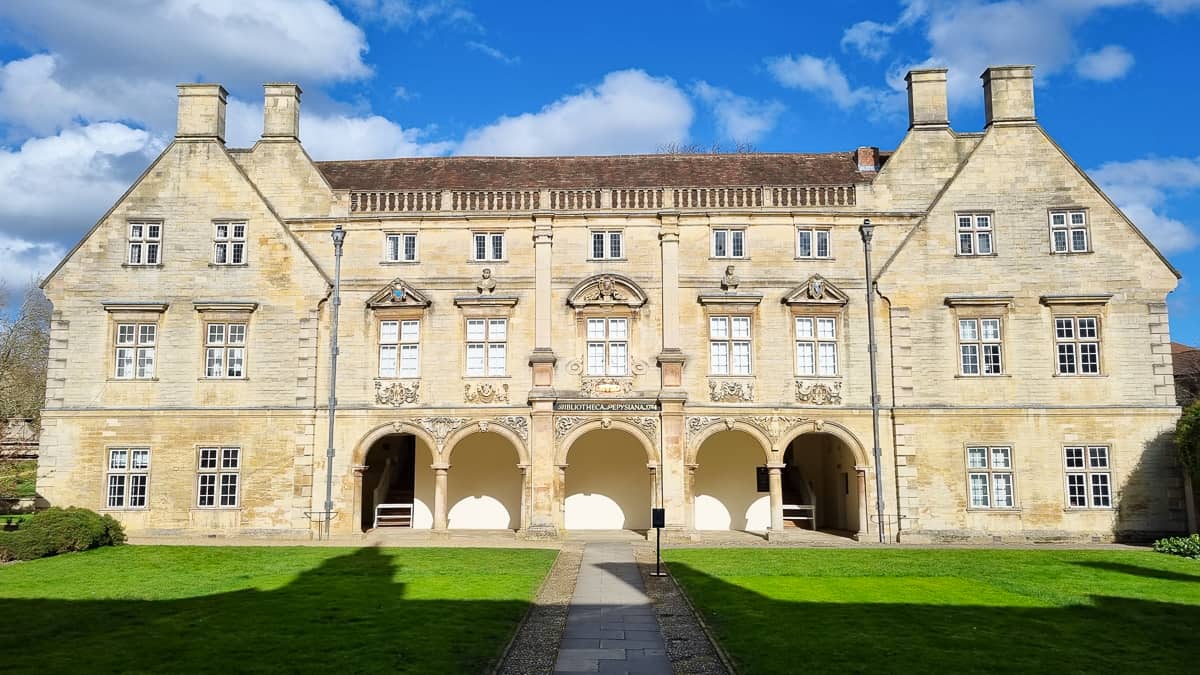
Experience life as a Cambridge University undergraduate
All participants will be allocated to a college a few weeks before arriving, based on their dates and subject choice.
If you would like to stay in the same location as a friend/sibling – please let us know and we will do our best to arrange this, where possible.
Males and females have separate accommodation in every college, and there is wi-fi available throughout.
For more information, please visit this page.
Student Welfare & Safety
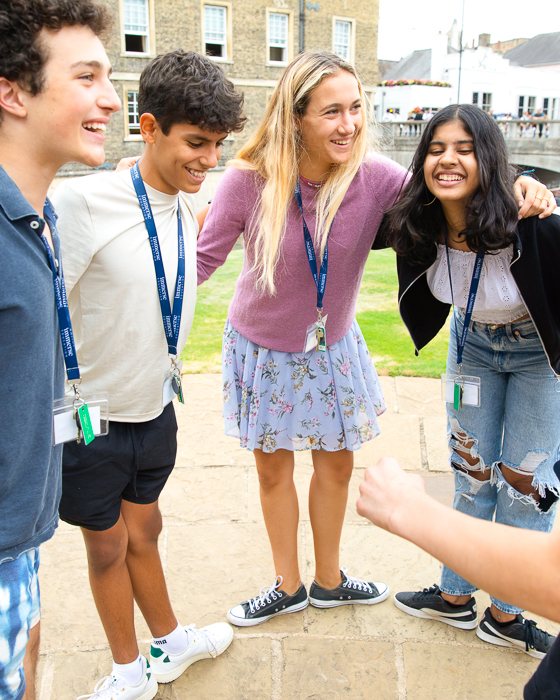
An accredited provider of academic short courses
Immerse Education is accredited by the British Accreditation Council (BAC), the leading mark of educational quality for the academic sector. Our accreditation with the BAC sends a positive and clear message to students and partners that they are studying with a trusted and reliable provider who has met a series of globally recognised quality assurance standards, both in terms of academic provision and student welfare.
The safety and well-being of our participants is our number one priority, and all staff undergo enhanced background checks and receive thorough safeguarding training before interacting with any students.
For more information, please visit our Pastoral Information page.
Meet some of our mentors and
college managers
-
FreyaFreya is a third year Medical student at St John's College, Oxford University. She is a keen runner and cyclist and has recently enjoyed taking up college rowing.
-
JemMentor
-
Lily-MaeMentor
-
PoppyMentor
-
SophieMentor
Immerse™ Physics Sample Modules
-
Module 1 - Classical Mechanics
The study of classical mechanics is the study of how objects move and is a topic tightly bound to the University of Cambridge via its founding father, Sir Isaac Newton. The skills required for mechanics are found in many areas of physics, and you will extend your knowledge of high school mechanics to include more complex problems relating to kinematics. -
Module 2 - Wave Phenomena
Propagation of energy or matter is often described either by the kinematic travel of an object or by the evolution of a wave. Whilst the most popular example of a wave, the water wave, might not seem too thrilling to study, the number of physical processes that include waves are innumerous. -
Module 3 - Electronic Engineering
Electronic engineering is a wide branch of engineering which applies the general principles of electromagnetism to digital circuits, sensors, actuators, mobile telecommunications, optic fibres etc. Participants will be introduced to basic electronic components and systems, and we will collaborate to briefly describe their working principle in scientific terms. -
Module 4 - Optics
The study of light as a wave initially turned out to be immensely powerful. It lays the foundation for the production of a wide range of things, ranging from reading glasses to far- space telescopes. In this topic, we remind ourselves of how light travels through mirrors, lenses, and pieces of apparatus built with optical elements. -
Module 5 - Electricity and Magnetism
Whilst the study of the movements of objects (from planets to apples) occupied physicists for centuries, the Industrial Revolution and the discovery of electricity led to an era of making the impossible possible. -
Module 6 - Thermodynamics and States of Matter
The matter in our universe can consist in different states. Some common examples include the gaseous state, the liquid state, and the solid state. -
Module 7 - Atoms, Nuclei and Elementary Particles
The ancient Greeks realised that many things in our universe seems to be governed by some underlying symmetry. Schools of fish tend to adapt symmetrical formations. Many flowers contain rotation symmetries etc. Over the last century researchers have been occupied with exploring what matter is ultimately made from. -
Module 8 - Quantum Mechanics
Whilst physicists were happy to work with Newton’s laws of motion when describing the movement of macroscopic objects, it eventually became clear that his formalism could not properly describe the movement of small objects. For example, electrons, which had been considered to move as particles, sometimes behaved as waves. To confuse things even more, light, which had been thought of as a wave, seemed to sometimes behave as particles. This famous wave-particle duality forced the community of physics to develop a new theory to resolve the paradox. This theory was called the theory of quantum mechanics.
Request syllabus overview
Request syllabus overview
-
7th – 20th July 2024
-
21st July – 3rd August 2024
-
4th August – 17th August 2024


